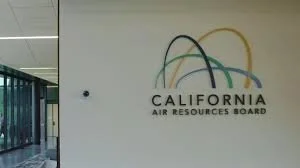California’s ESG Revolution: What SB 253 and SB 261 Mean for Corporate Climate Accountability
Overview
California is setting a new national benchmark for corporate climate transparency with the rollout of SB 253 and SB 261. These laws will require thousands of companies doing business in the state to disclose their greenhouse gas emissions and climate-related financial risks—ushering in a new era of ESG accountability.
CARB’s Climate Legacy
The California Air Resources Board (CARB) has long been a pioneer in environmental regulation, with a track record spanning over 50 years. From smog reduction to clean transportation, CARB’s science-driven approach has shaped state and national climate policy. Now, with SB 253 and SB 261, CARB is expanding its oversight to corporate climate disclosures.
The Legislation: SB 253, SB 261, and SB 219
SB 253 – Climate Corporate Data Accountability Act Targets companies with over $1 billion in annual revenue doing business in California. Requires disclosure of Scope 1 and 2 emissions starting in 2026, and Scope 3 emissions in 2027. Mandates third-party assurance, beginning with limited assurance.
SB 261 – Climate-Related Financial Risk Disclosure Applies to companies with over $500 million in annual revenue. Requires biennial reports on climate-related financial risks, aligned with frameworks like TCFD and IFRS S2. Reports must be publicly posted and submitted to CARB’s docket.
SB 219 – Flexibility and Adjustments Clarifies timelines and allows parent-level consolidation for reporting. Grants CARB authority to set Scope 3 disclosure schedules.
Who’s Covered?
CARB estimates:
~2,600 entities will be subject to SB 253.
~4,100 entities will be subject to SB 261.
Definitions of “doing business in California” and “revenue” are being refined, with input from stakeholders. Exemptions may apply to nonprofits, government entities, and companies with only teleworking employees in California.
Fee Structure: Paying for Transparency
To fund the implementation:
SB 253 entities will pay an estimated annual fee of $3,106.
SB 261 entities will pay around $1,403.
Companies subject to both laws will pay both fees.
Fees will be adjusted annually for inflation and program costs.
Timeline: What’s Next?
Key dates:
August 21, 2025: Public workshop held.
October 14, 2025: Notice of proposed rulemaking.
December 11–12, 2025: CARB board hearing.
January 1, 2026: First SB 261 reports due.
June 30, 2026: SB 253 Scope 1 and 2 reports due.
2027: Scope 3 reporting begins.
Reporting Guidance
CARB will provide templates and guidance based on established frameworks:
TCFD (Task Force on Climate-related Financial Disclosures)
IFRS S2
ISO and AA1000 standards
Reports must include governance, strategy, risk management, and metrics/targets. Entities must explain omissions and future plans for incomplete disclosures.
Assurance and Oversight
Third-party assurance is required to validate emissions data. CARB will oversee verification processes and may audit reports. Independence, impartiality, and transparency are key to maintaining public trust.
Public Engagement
CARB is actively seeking stakeholder feedback. A public docket is open for comments, and future workshops are planned. Interested parties can subscribe to CARB’s listserv for updates.
California’s ESG laws are more than regulatory milestones—they’re a call to action for corporate accountability in the face of climate change. Businesses that embrace transparency now will be better positioned for the sustainable economy of tomorrow.

